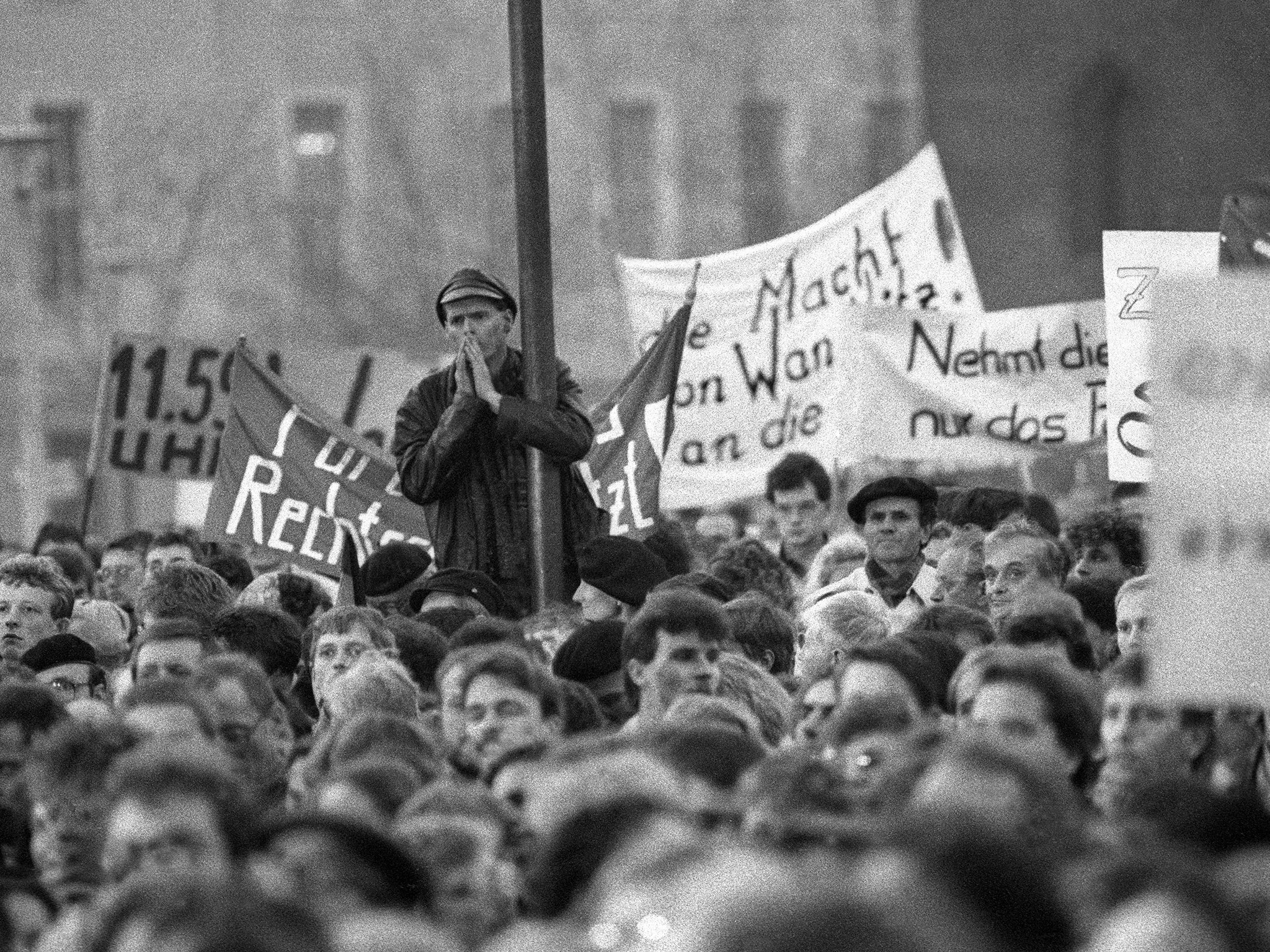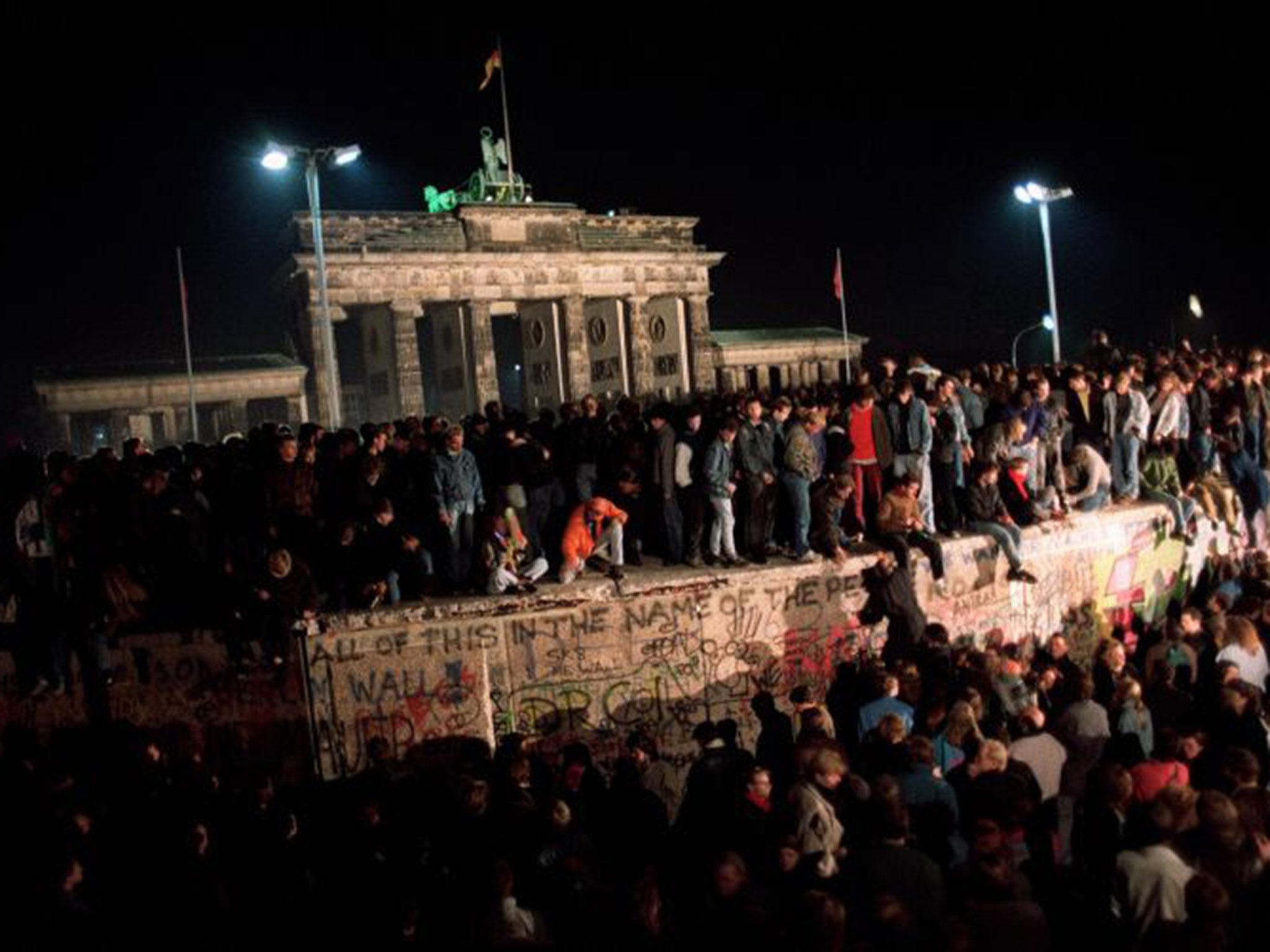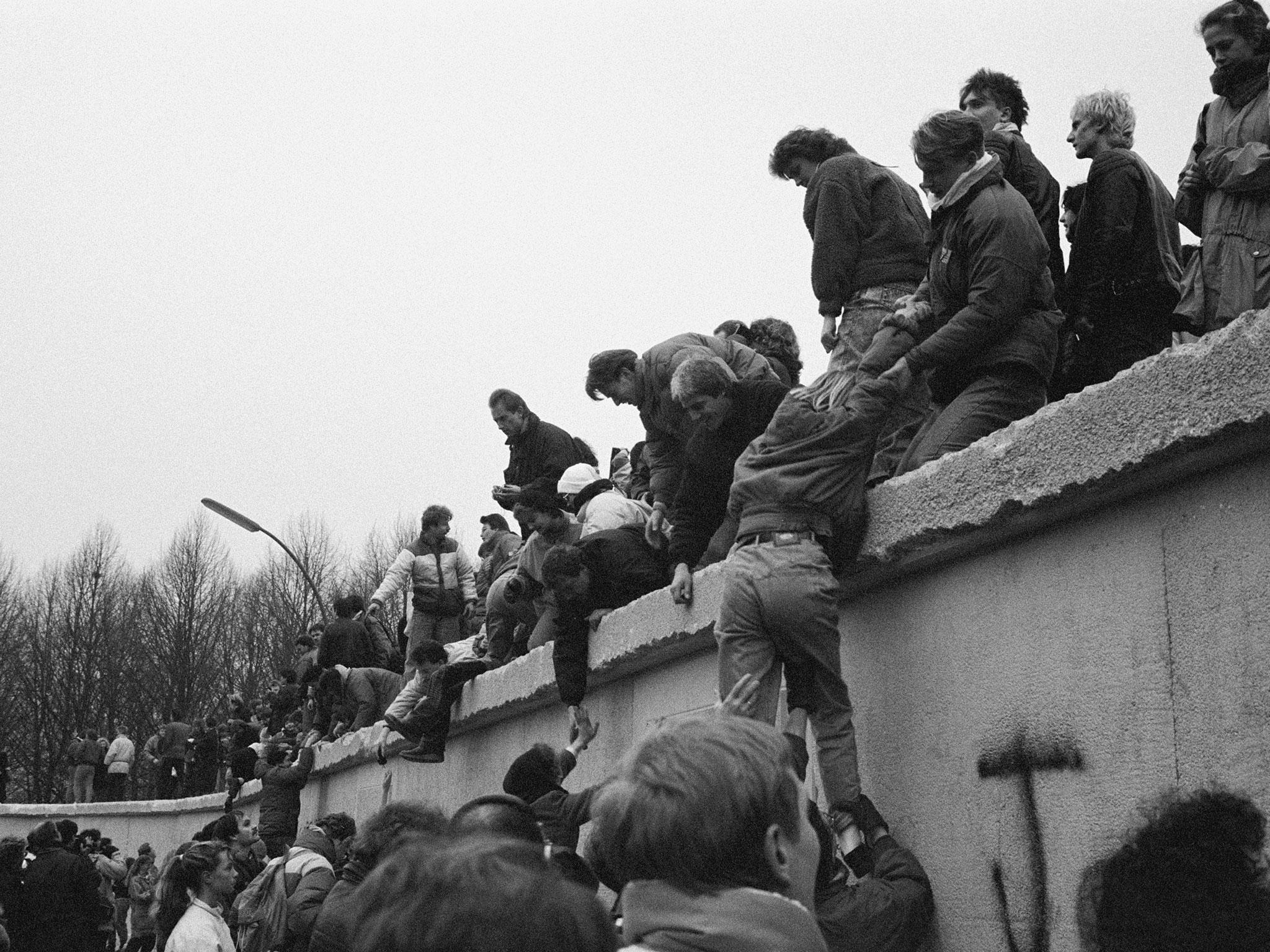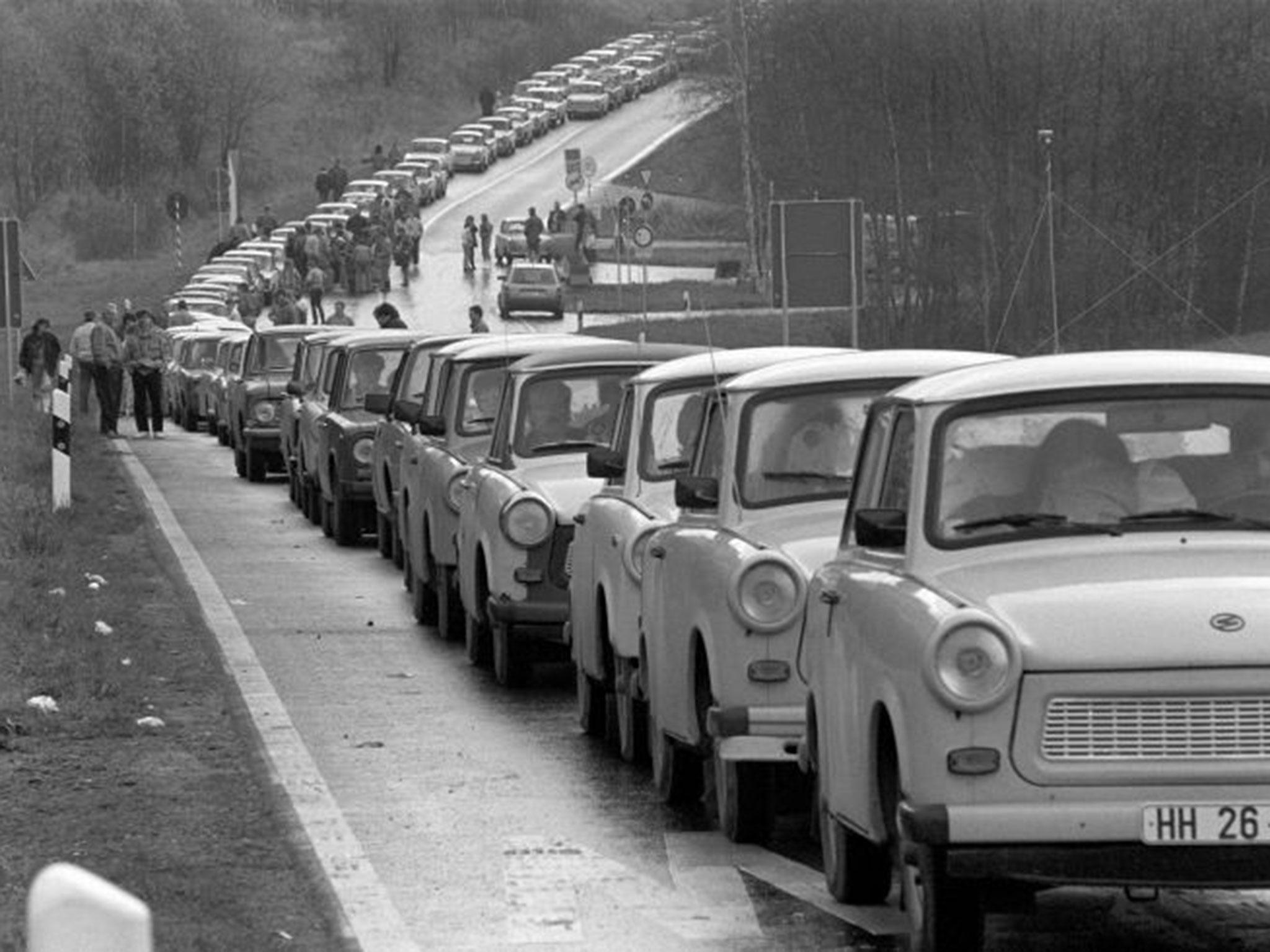Fall of the Berlin wall - 25 years on: 'We were always aware that another part of Berlin existed'
East Berlin schoolboy Robert Vielhaber recalls how his father was jailed by the Stasi for attempting to flee – and the remarkable days leading up to and after the fall of the Wall

Your support helps us to tell the story
From reproductive rights to climate change to Big Tech, The Independent is on the ground when the story is developing. Whether it's investigating the financials of Elon Musk's pro-Trump PAC or producing our latest documentary, 'The A Word', which shines a light on the American women fighting for reproductive rights, we know how important it is to parse out the facts from the messaging.
At such a critical moment in US history, we need reporters on the ground. Your donation allows us to keep sending journalists to speak to both sides of the story.
The Independent is trusted by Americans across the entire political spectrum. And unlike many other quality news outlets, we choose not to lock Americans out of our reporting and analysis with paywalls. We believe quality journalism should be available to everyone, paid for by those who can afford it.
Your support makes all the difference.I lived in a small town near Berlin in East Germany about 20km from the Berlin Wall.
In 1989 I was 10 – old enough to be aware of what was going on at the time.
Growing up in East Germany was carefree and I had a good childhood. I enjoyed going to kindergarten and later to school and to an after-school care club, where I would spend time with my friends while my parents were at work.
For my parents, life was more difficult. They felt the effects of the constant control through the communist state, and in particular the lack of free choice.
Both my parents are doctors and they met in Schwedt an der Oder, a mid-sized, state-planned industrial town near the Polish border, where they were sent after medical school because doctors were needed in that part of the country.
The state ensured that they had jobs, an apartment and that they could have children while staying in their professions. We lived in a state-planned housing complex.
Soon the narrowness, the limited choice and the constant control of living in East Germany were having its effects on my family. My parents divorced and my father made plans to escape from the East and start a new life in West Germany.
At that time I was a little boy and only many years later I learned what had really happened in the years that would follow. I still find it difficult today to understand the full meaning of those events.
The East German secret police (Staatssicherheit or Stasi) found out about my father’s plans to flee the German Democratic Republic, or GDR. They arrested him on the day that he wanted to leave East Berlin, accusing him of what they termed Republikflucht – the attempt to illegally cross the East German border and to escape the communist state.
Following his arrest, he had to spend two years in prison. However, during his prison tenure, the Stasi had made things even more difficult for him because they never actually told him for how long he was going to be confined.
He was moved several times to different East German prisons and each time he was left in the dark about what was going to happen to him or where he was being transported. What’s more, fleeing East Germany meant that my father was separated from his entire family – his son, his mother and his brothers.
When the Berlin Wall was torn down and East Germany opened its borders to the West it was very emotional for me and it affected me and my family personally.

As a 10-year-old boy my view of what was going on was shaped by how my mother was reacting to it and I mostly saw the events through what she told me. The town we lived in shared a border with West Berlin. No one was allowed within 10km of the Berlin Wall, and you needed a special permit if you lived in a house close to it. But that meant we were constantly aware that another part of Berlin – and another part of Germany – existed.
Where we lived we were able to follow closely the events leading to the fall of the Berlin Wall and eventually the reunification of Germany one year later in October 1990.
Given that we lived near West Berlin, we had access to unbiased information and news through West Germany’s television and radio. Unlike people who lived further away from West Berlin, we did not have to rely on the propaganda that was spread from the state controlled media in the East.
I remember that living in East Germany in 1989 and witnessing the events leading to the fall of the wall was such a remarkable period of time because people could not believe what was happening, and at the time no one imagined the events that followed.
The collapse of the German Democratic Republic had seemed so unlikely to me, because the state had the full power to exert control over people’s everyday lives.
Although my parents were divorced they had kept in touch. But the Stasi made it very difficult. They opened the letters and parcels we received from West Germany. If we wanted to call my father, we had to apply several hours in advance and we could be sure someone from the Stasi was listening in the background. Much later my parents learned that East German officials had kept detailed reports of all their activities during that time and that the secret police watched them closely.

The 9 November 1989 was a Thursday, and I remember the day itself mostly from following the events on Western television and radio. East German programmes and newspapers did not make a mention of anything that was going on in Berlin. The next day I went to school, and when lessons started in the morning, the classroom was half empty. Most parents had taken their kids to West Berlin on that day to see if what was happening was real.
From November 1989, things in my small town were changing fast. When people were not allowed to go anywhere near the Berlin Wall before; now they could just go to West Berlin as if it was the most normal thing in the world.
It was so unbelievable; people from the East and the West just stopped in the streets and talked about what was going on, often ending in hour-long discussions.
The events leading to the fall of the Berlin Wall and the opening of the East German borders on 9 November 1989 for me meant that my life would change completely.
I first visited my father in Frankfurt, West Germany in February 1990 – three months after the fall of the wall. I went with my mother by train from Berlin. I remember the day very well; being excited and also a little nervous. We passed the border, and no one asked us for our passports or where we wanted to go – unimaginable only months earlier. We arrived and everything looked and felt different. Streets were clean, buildings and houses were kept well and the air did not smell of burnt brown coal.
My father met us at the station, and for a few days I felt like living in a different world. I returned home after a few days, and became aware of the large differences between East and West, in particular of the rundown, sad and dirty state that East Germany was in.
Looking back I realise that 9 November 1989 was the most unusual, remarkable time in my life.

From the archive: 'What a day, what a wonderful day'
Twenty-five years ago Patricia Clough reported as the Berlin Wall was breached. From The Independent 11 November 1989
Joachim Gottschalk pointed his mechanical digger at the Berlin Wall, lowered the grab and bit. The plaster broke like icing off the two or three thicknesses of flimsy hollow brick inside – an absurdly cheap, thin construction to have kept East from West for the past 28 years.
The breaching of the Wall followed a day of euphoria in which thousands of Berliners, with cheers and singing, kisses and hugs, whoops and tears of delirious joy, were reunited. Hundreds of thousands thronged to the crossing-points and the green-uniformed guards, once so forbidding, simply let them pass. Later, starry-eyed and intoxicated by a sense of freedom as much as the beer, most were content to return to their jobs, homes and families.
The day that few had thought they would live to see burst upon the city at 7pm on Thursday evening with the impact of a gigantic stun-bomb. At first, neither the East nor the West German television and radio announcers appeared to quite grasp what the news meant. “Someone brought the news while we were having an employees’ meeting. I simply didn’t believe it,” said Volker Zacke, a taxi driver. “To think that it could happen in my lifetime,” said a man at Checkpoint Charlie, blubbing uncontrollably.
It was only a couple of hours later that people began flocking, as if drawn by a magnet, to the checkpoint without waiting for any visas. “It was like a dream,” said a young mother as she crossed back at dawn into the East to get her children up for school. “I have lived for 28 years with my windows looking on this side of the wall,” said Horst Pieper, 65. “I wanted to see what it looked like from the other side.
Join our commenting forum
Join thought-provoking conversations, follow other Independent readers and see their replies
Comments